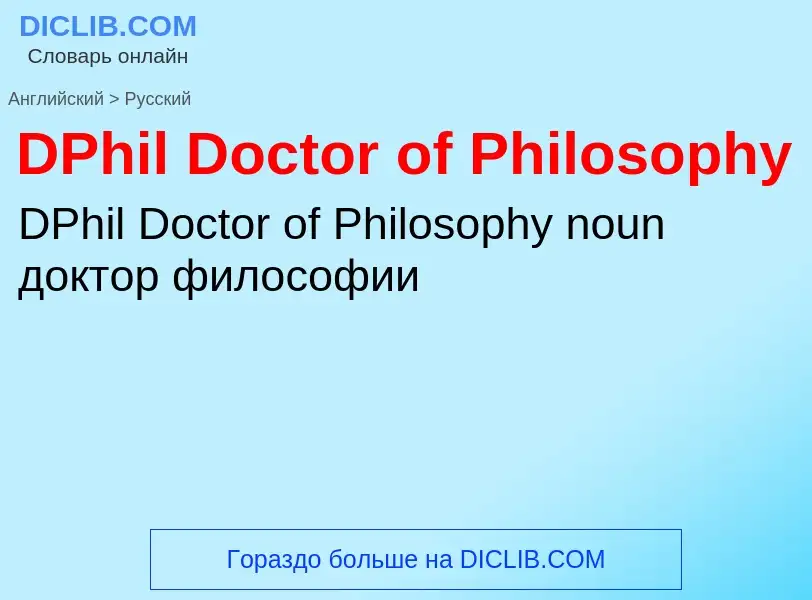Tradução e análise de palavras por inteligência artificial ChatGPT
Nesta página você pode obter uma análise detalhada de uma palavra ou frase, produzida usando a melhor tecnologia de inteligência artificial até o momento:
- como a palavra é usada
- frequência de uso
- é usado com mais frequência na fala oral ou escrita
- opções de tradução de palavras
- exemplos de uso (várias frases com tradução)
- etimologia
DPhil Doctor of Philosophy - tradução para Inglês
[,pi:eɪtʃ'di:]
сокращение
от Doctor of Philosophy (в Кембриджском университете [Cambridge University]; ставится после фамилии)
[,dɔktərəvfɪ'lɔsəfɪ]
общая лексика
доктор философии (низшая учёная степень доктора; присуждается после защиты диссертации специалистам в области философских и некоторых др. наук)
Definição
.
Wikipédia

Philosophy and economics studies topics such as public economics, behavioural economics, rationality, justice, history of economic thought, rational choice, the appraisal of economic outcomes, institutions and processes, the status of highly idealized economic models, the ontology of economic phenomena and the possibilities of acquiring knowledge of them.
It is useful to divide philosophy of economics in this way into three subject matters which can be regarded respectively as branches of action theory, ethics (or normative social and political philosophy), and philosophy of science. Economic theories of rationality, welfare, and social choice defend substantive philosophical theses often informed by relevant philosophical literature and of evident interest to those interested in action theory, philosophical psychology, and social and political philosophy.
Economics is of special interest to those interested in epistemology and philosophy of science both because of its detailed peculiarities and because it has many of the overt features of the natural sciences, while its object consists of social phenomena.




![PhD gown, [[University of Cambridge]] PhD gown, [[University of Cambridge]]](https://commons.wikimedia.org/wiki/Special:FilePath/Ph.D. gown, Cambridge University.jpg?width=200)
![doctor's bonnet]], shakes hands with the Chancellor doctor's bonnet]], shakes hands with the Chancellor](https://commons.wikimedia.org/wiki/Special:FilePath/PhD graduand shaking hands with Sir Dominic Cadbury, the Chancellor of the University of Birmingham - 20120705.jpg?width=200)
![A [[Yale University]] PhD diploma from 1861. A [[Yale University]] PhD diploma from 1861.](https://commons.wikimedia.org/wiki/Special:FilePath/Ph D diploma Arthur William Wright Yale University 1861.jpg?width=200)


